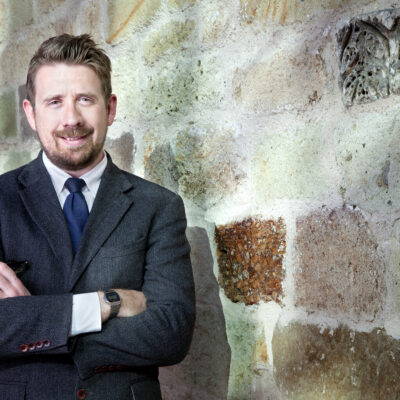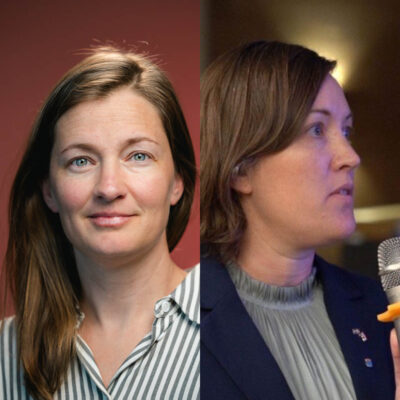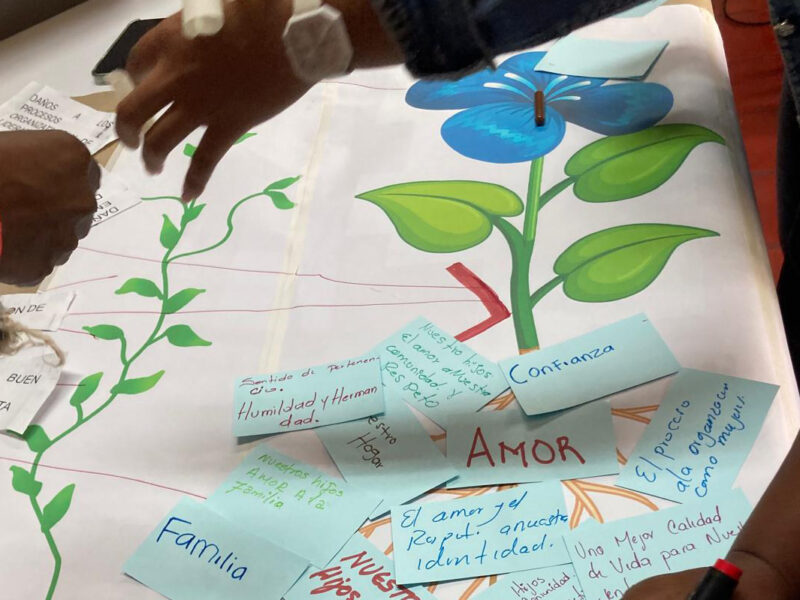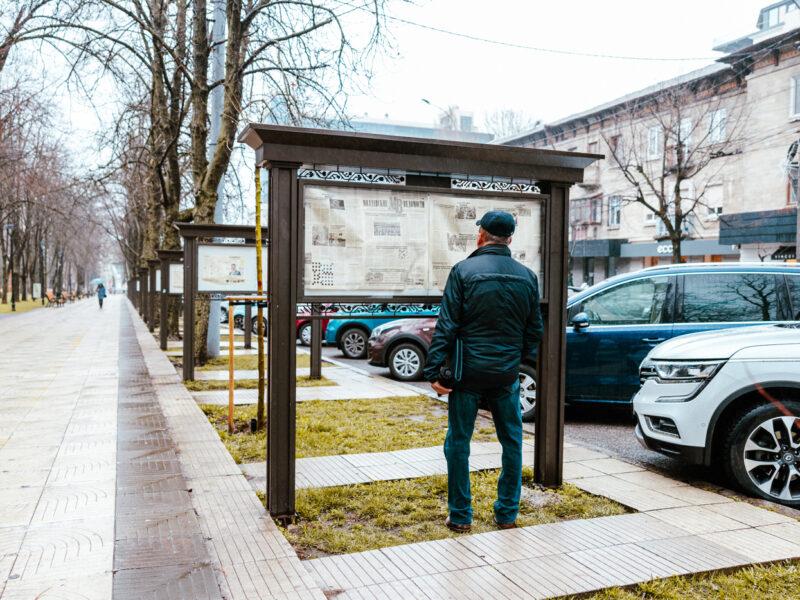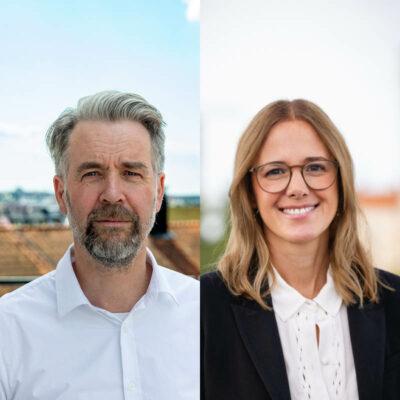The view from Brussels – common challenges in uncertain times
Regardless of the weather (which indeed is frequently poor), a stroll around the central European Quarter of Brussels is an impressive experience. I was reminded of this when I returned to the European capital for a new assignment for the FBA this summer, as Strategic Planner within the European External Action Service (EEAS.) Walking up Rue de la Loi and arriving at Place Schuman, you see in every direction the temples of the European project in the form of the monolithic office buildings gradually added to the Brussels skyline over the last 50 years. The European Commission (the executive branch of the EU), the EEAS (the ’foreign ministry’ of the EU), and the Council of the European Union (where EU member state leaders and their representatives assemble to decide on policy) are, in a word, massive. Whether by architectural design or as the organic result of bureaucratic growth, the visitor is surrounded by stately, sober, modern monuments to the steady ambition, confidence, and long-term perspective of the European member states to build an ever-closer union, or in my case, an ever-more coherent foreign and security policy.
At first glance, it is an inspiring sight, especially when the buildings empty during lunch and fill the streets with the sounds of a dozen languages. Still, underneath it all there is a sense of unease in Brussels that I didn’t see when I last worked here in 2013. Outside major buildings and metro stations Belgian soldiers stand guard in full combat gear, a lingering aftereffect of the terrorist attacks in Brussels in March and a reminder of Europe’s collective anxiety over terrorist threats in recent months and years. Meanwhile, the fact that, for the first time, a European member state has voted to leave the EU has left Brussels in a certain state of shock. Indeed, the Brexit vote on 23 June was a seismic shift in the EU, the source of great uncertainty over the future of this union, the commitment of its members, and the resilience of its institutions. The structures are large and impressive, but are the foundations capable of enduring this political earthquake?
So far there is no clear answer to this question, and as the EU High Representative for Foreign Affairs Federica Mogherini told EEAS staff on the morning after the vote, the first priority has been to stay focused on our work. In my case that means working at the Crisis Management Planning Directorate, one of the institutions carrying out the EU’s Common Security and Defence Policy (CSDP), which aims to provide collective EU responses to crises, conflicts, and security concerns threatening peace and stability outside the EU’s borders. Our current task is to plan for a possible civilian mission to help build security and criminal justice structures in Libya and support the EU naval mission in the Mediterranean against human trafficking (which has so far saved thousands of migrants stranded at sea.)
The Libyan situation is a fine example of an issue that affects the safety and security of all EU members, and where a neighbouring country without functioning governing structures and rule of law becomes a haven for terrorism, organised crime, and human rights violations. Addressing this challenge in a sustainable, effective, and appropriate fashion is a daunting task, but begins with a great deal of discussion and coordination between multiple EU institutions, international partners, and the member states themselves. This is also true for any number of challenges dealt with by my colleagues around the EEAS (including my Swedish colleagues also seconded by FBA). All of them, whether focusing on crisis prevention, mediation, human rights and gender, military and police advising, or logistics, must coordinate the widely spread tools of the European Union to somehow fit together into one comprehensive approach that functions in the field. In short, we have little spare time to think about Brexit, for now.
In this job, and from my previous position here as a political adviser focusing on Kosovo, I am reminded of all the challenges that come with working at the headquarters level in Brussels, an entirely differently world than those of our colleagues working in missions in places like Afghanistan, Georgia, Ukraine, and Kosovo. Coordinating the various policies, approaches, and interests of 28 member states is an arduous task. Crafting policy documents, political briefings, securing funding support, and communicating these needs to experts, planners, and diplomats in the field is decidedly ’un-sexy’ compared to the excitement of, say, advising a post-conflict government or working to strengthen local NGOs in a newly independent country. Does the system work efficiently? Certainly not, but the complexity and frustration of these processes is part of the job, and ultimately enables the experts in the field to carry out their work with the EU’s support. In the meantime, much like steering an ocean liner, the EU and EEAS learns lessons and slowly turns in the direction of refining and improving its very young foreign policy institutions.
Though at the time overshadowed by the Brexit vote, on 28 June Mogherini presented the European Union Global Strategy for Foreign and Security Policy, replacing the last such strategy from 2003 with a document refocusing and refining the union’s ability to act effectively for both its own peace and security and for that of its neighbours. The strategy, which is well worth a read, is notable for its thoughtful recognition that much indeed has changed since 2003, and that the EU must adapt to foreign policy challenges with more unified institutions and instruments focused on the stability and resilience. For a shaky foundation, the strategy offers some concrete solutions for European institutions, if the member states choose to implement them.
Whether by luck or fate, I seem always to arrive in Brussels on the eve of big announcements and events. When I arrived here last in 2012 to work as a political adviser, the EU was awarded the Nobel Peace Prize for its cumulative work to build and preserve peace in post-war Europe. While this time I arrived to the far less pleasant Brexit announcement, I think it is worth considering that both announcements tell a genuine part of the story of the European project. The EU which won the Nobel Prize in 2012 is real, and has accomplished the previously unthinkable goal of uniting the efforts of nations previously engaged in centuries of warfare to solve their differences. Meanwhile the ’vulnerable EU’, often making itself the easy target of accusations and criticisms from dissatisfied member states and citizens, straining to respond to new challenges with the consensus of 28 countries to consider, and often teetering on the brink of failure to do so, is also very real. Uniting the efforts of 28 members invariably involves larger arguments and disagreements, lengthy processes and compromises that then must be explained to voters at home. It is a massive task, but it is indeed an effort born from the desire for peace and prosperity in a Europe robbed of both only 70 years ago. If I leave Brussels and arrive here again in five years I have no idea how far we will have progressed on this path, but I have a feeling I will still find a European Union at work here, perhaps reeling from the freshest ’disaster’ or imperfectly but steadily working to become a better version of itself.
av Andreas Berg
